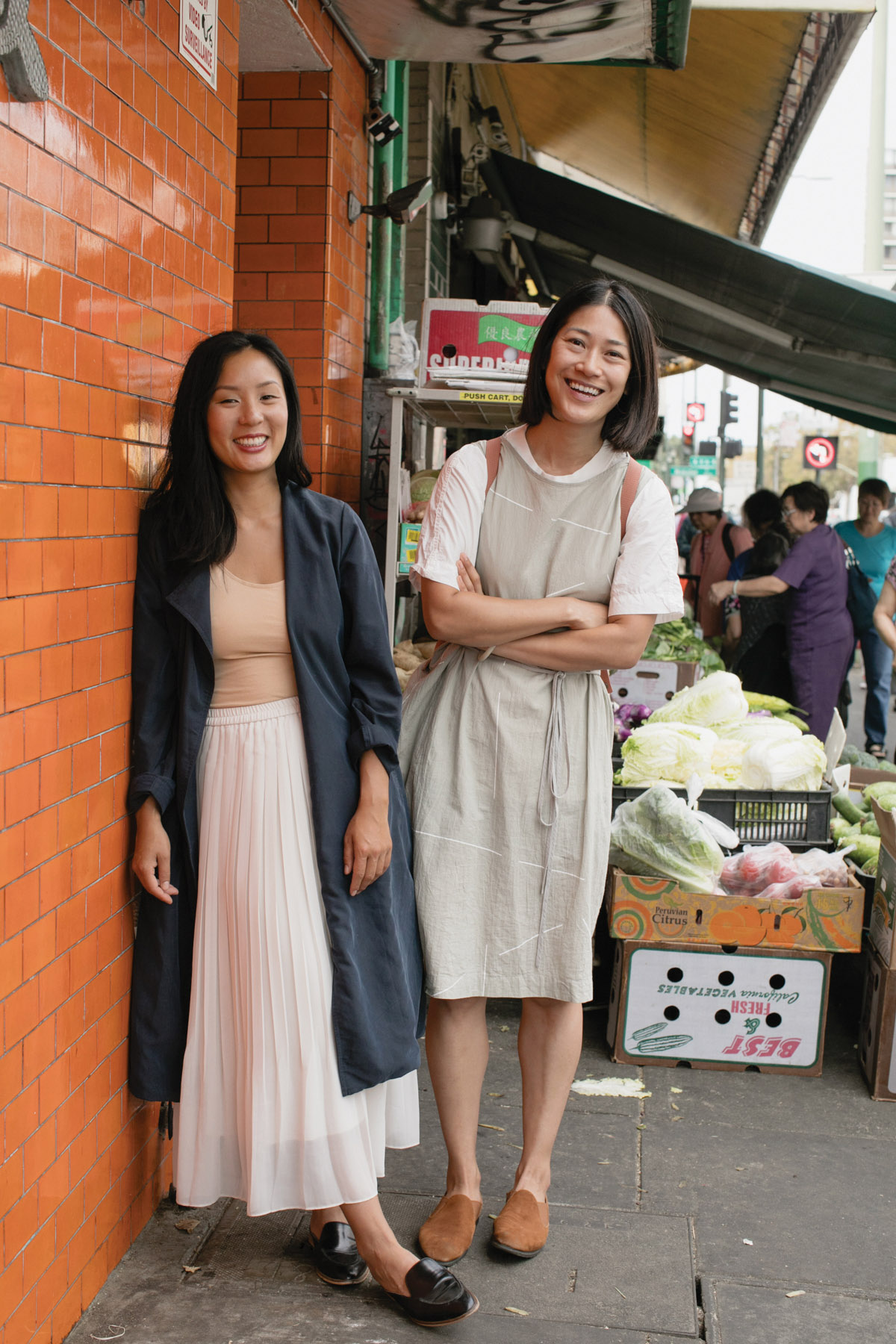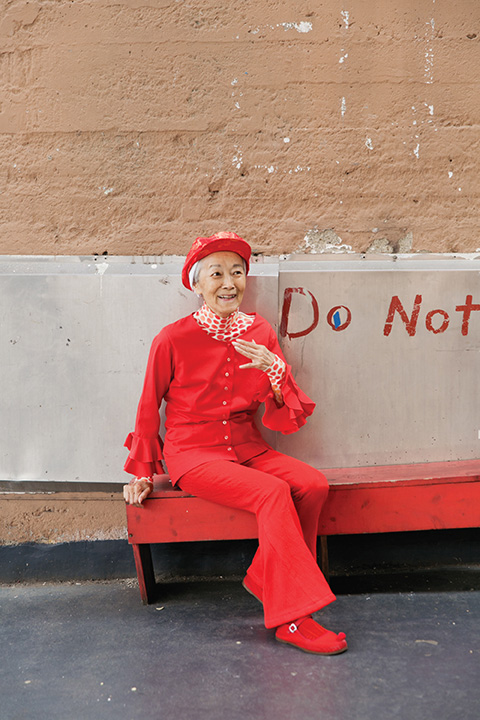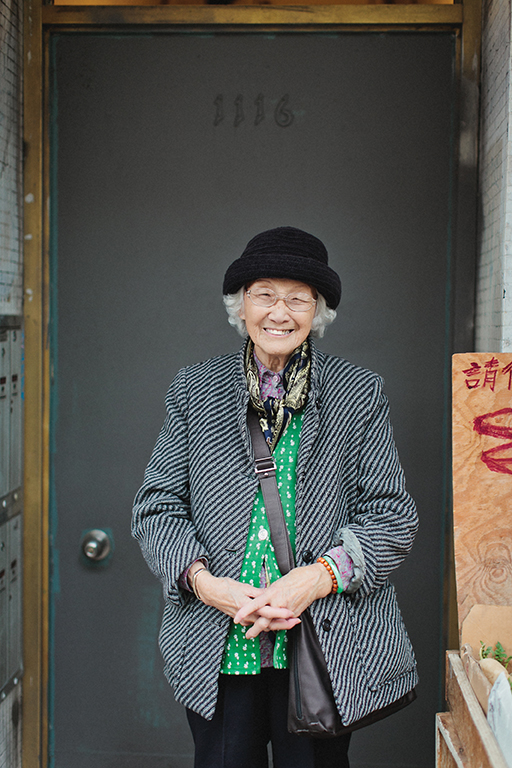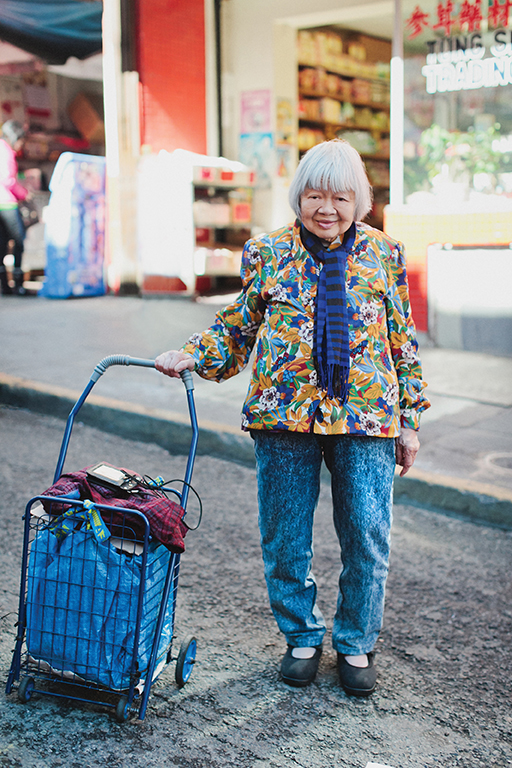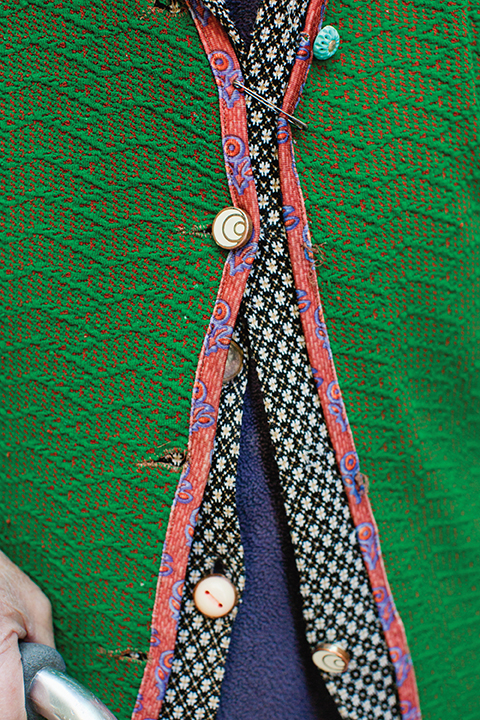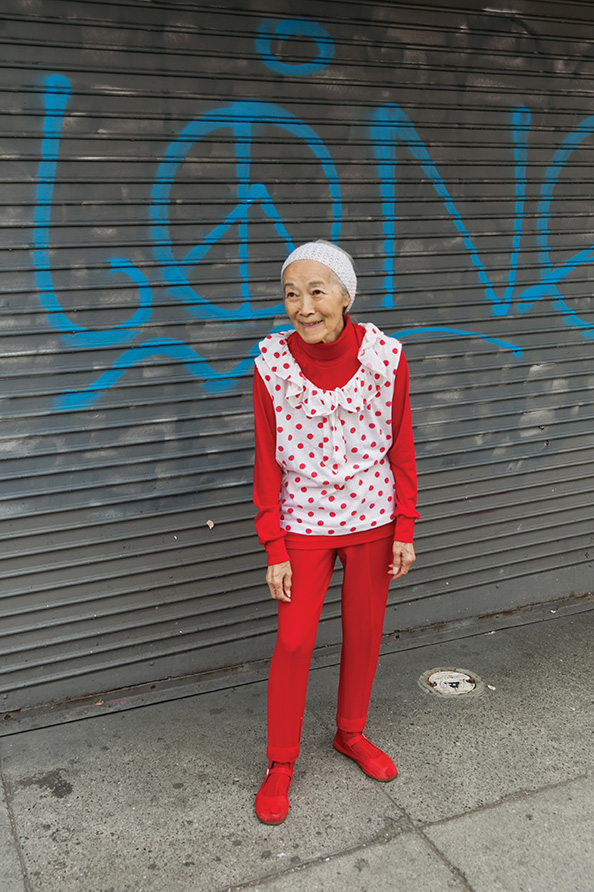Vibrant Fashion, Deep Roots, and Wisdom from Chinatown Pretty
womanly chats
Issue no. 3: words from the wise
Words - Attia taylor
photography - Chinatown Pretty
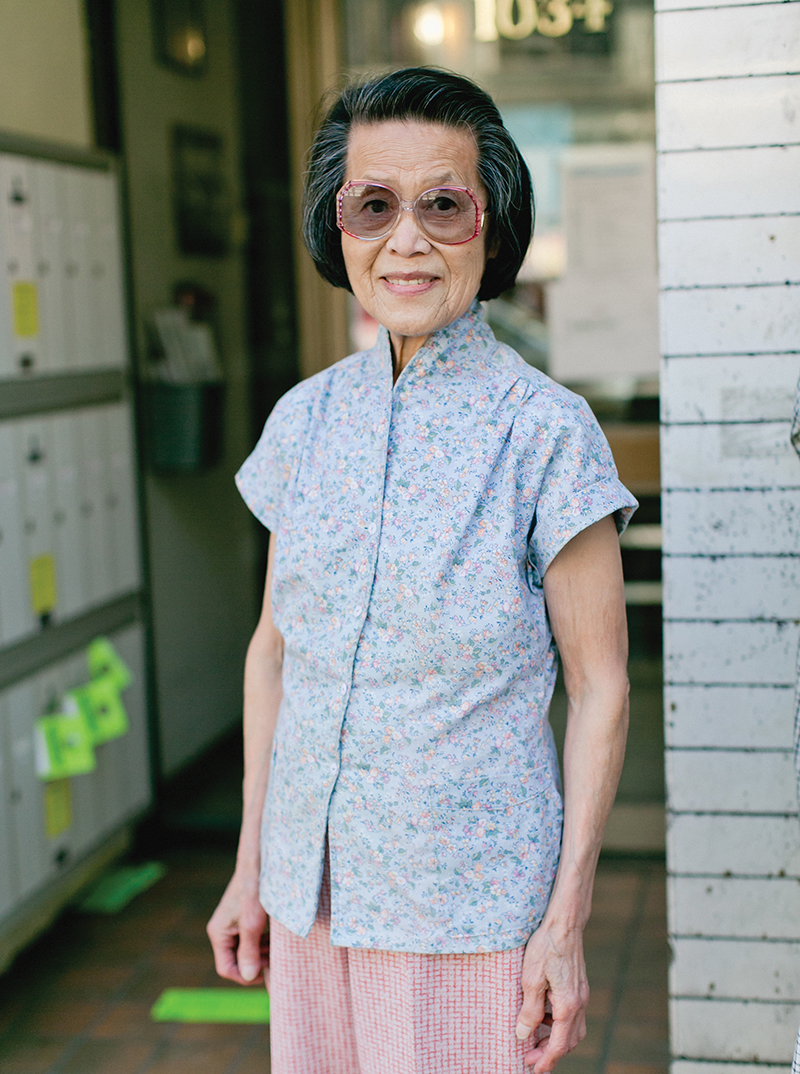
Valerie Luu and Andria Lo are the creators of Chinatown Pretty. Their portraits and short interviews celebrate the fashion and lifestyles of the po-pos and gung-gungs (grandmas and grandpas) of North American Chinatowns.
Editor-in-Chief Attia Taylor spoke with Valerie and Andria after their recent trip to Vancouver to talk about the evolution of the project and what they’ve learned from their interview subjects.
Valerie Luu: Andria and I met in the food world and realized we have the same affection for Chinese seniors and their unexpected style. We would see people, stop in our tracks, and feel our hearts skip a beat. So we decided to do an article together for an online magazine, and that started the project. Since then, it's grown to be an Instagram account, a website, and now we’re working on our first book! We've been traveling to Vancouver, New York, and Chicago this year to document seniors in Chinatowns across North America.
Andria Lo: We just left Vancouver yesterday. Like many Chinatowns, it’s undergoing some threats from gentrification, and changes in the demographics and neighborhood.
Valerie: Chinatowns are historically a place for immigrants to use as a landing pad, a place where they can come in only knowing Chinese, and get the services, support, and jobs they need. But immigration patterns have changed and people have moved to the suburbs, so the population has decreased, and therefore businesses and services have also decreased. As a result, sometimes you’ll see newer, non-Chinese businesses moving in.
We’ve partnered with organizations that are working to preserve Chinatowns, in L.A., New York, and Vancouver, and are also trying to reimagine it. In Vancouver, we joined in on an event called ‘Mahjong Social’ which was hosted by the Youth Collaborative for Chinatown. Twice a month during the summer, they activate an outdoor plaza and put out Mahjong tables. We saw 20-year-old Asian Canadians Instagramming and playing Mahjong with seniors, wearing wide brimmed hats and polarized glasses. It was so cool to see the young and old together.
It was a good example of reimagining, reactivating, and reinvigorating Chinatown. We’ve seen this pattern where people who feel like their heritage and their culture are being threatened. It was really refreshing to see that event in Vancouver, that kind of energy.
Attia Taylor: What have been some of the reactions from people in Chinatown when you approach them to take their portrait?
Andria: A lot of seniors don’t know why we think they’re special. When they get dressed in the morning, they might not think that their clothes are beautiful because a lot of it is hand-me-down, or they don’t consider it to be expensive or stylish. Generally, we try to make them feel good about how they look and tell them that we love seeing them out and about, living independently. Other times people are pretty trusting and just let us take their photo, and give us their info. So it’s pretty varied.
Valerie: Sometimes we’re on the street interviewing people that we’re just approaching, but we also do scheduled portrait days, where we partner with an organization and take portraits for their clients. There’s a lot of laughter, and lots of holding hands and just being in their presence. There are also really moving stories that range from talking about growing up really poor as farmers, to getting the chance to be sponsored to immigrate to Canada by their relatives. And now they’re spending their days going grocery shopping or playing Mahjong with their friends. There’s a lot of resilience and openness and sweetness, and sometimes tears. Yesterday, we met a senior that talked about how she missed her husband who died when he was forty, and that was fifty years ago. She’s 90 years old, and her daughter who was 70 just passed away. She was tearing up while she was telling us this, and our translator started to cry, and then I started to cry.
We’re able to share the joys and pains of just being alive. And because a lot of the people we interview are in their 80s and 90s, we always ask them to share some wisdom or secrets to living a happy life.
Exercise is one of the top answers. Some of them do Tai Chi, or sword dancing in the park. Some of them do a series of small movements and exercise groups in the park. People make sure to take walks on a daily, or at the very least, weekly basis. Living in an urban Chinatown where they’re able to easily walk around and interact with people their age is a key to longevity.
Andria: They have a range of health conditions. Most people have bad knees. But despite that, they still go on daily walks. In Vancouver we met Ms. Chang, who swims Monday through Friday in the mornings. She’s 102 years old, and she wakes up earlier than we do to go for her morning water aerobics.
Valerie: I think that something we’ve noticed is that it’s really a “use it or lose it” kind of thing. It’s harder to get going when you stop using the muscles. So the seniors that are most active make it a point to exercise everyday.
Attia: What has changed for you in the mission of doing this work since you started?
Andria: Personally, I started this project out of curiosity. We were drawn to this particular style and wanted to understand and capture it; it was about the fashion. We were also curious about this age group, how they live, and wanted to cross that generational and cultural barrier. We got to know the people and the neighbourhood through the lens of fashion. Now we’re also working with local nonprofits, and have a better understanding of the constant advocacy that it takes to preserve and sustain a vibrant Chinatown that serves the people that live there. For me, the mission of the project is also to let people know that Chinatowns are something to be treasured and protected.
Valerie: For me, originally it was trying to find out where these grandmas got their shoes ‘cause they looked so cool! But now I always end our interview with “What’s the secret to a happy life?” Because a lot of these seniors are three times my age, but have three times more energy than I have, and are three times more social, and three times more out in the streets than I am. So I ask them, how can I live a vibrant life as a 30 year old, but also when I’m a 90 year old? I find their lifestyle and their energy just as inspiring as their style.


